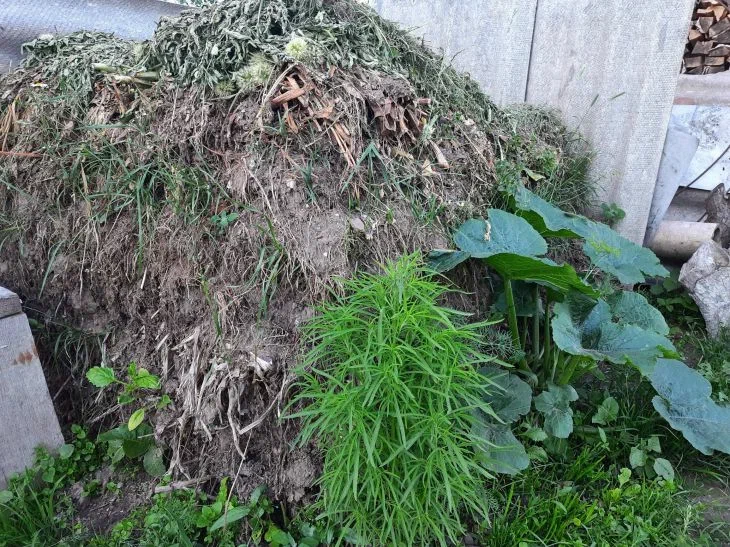Compost ripening on the site attracts pests like a magnet: cockroaches, flies, rats and others.
To avoid unwanted guests, avoid adding certain food scraps to your compost pile: meat, bones, dairy products, and oils.
The contents of the cat litter box are also not a place here: they can introduce potentially dangerous parasites into your area.
In addition, you should also turn the compost pile to hide food scraps inside.
To turn over and at the same time aerate the compost, you need to lift its top layer of 10-15 cm and turn it over so that its bottom side is on top.

Monitor the humidity of the compost: to ensure the decomposition process is more active, it should be moist, but not wet.
During heavy rains, cover your compost pile to prevent excess moisture from causing fungi to settle there and attract a new set of pests.
Experienced gardeners, to avoid trouble, sprinkle 10-15 cm layers of compost with diatomite.
Don't worry: it won't harm the worms and grubs that benefit your compost heap.
You can also use cayenne pepper or strong-smelling essential oils to repel pests: cedar, eucalyptus, lemongrass, etc.
If rodents are the main threat to your compost, try planting peppermint nearby – mice won’t dare to come near this place.
Finally, consider composting in a container lined with fabric or geotextile rather than in a pile, to prevent harmful creatures from getting inside.








